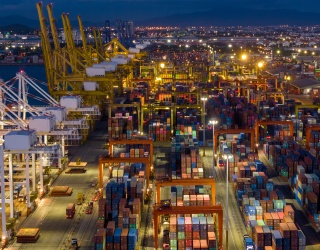
A new report by the International Corporate Accountability Roundtable (ICAR) makes the business case for companies to adopt greater supply chain transparency measures, showing that when they do, businesses enjoy better reputations, greater operational efficiency, improved legal compliance, and increased access to capital. The report, “The Benefits of Transparency: A Business Case for the Apparel and Footwear Supply Chain Transparency Pledge,” urges companies to adopt a transparency pledge that increases the level of information they disclose about their supply chains, which helps businesses achieve these benefits.
“Far from being a liability, we’ve seen that, when business take steps to make their supply chains more transparent, members of the public, governments, and investors respond positively,” said Meg Roggensack, Interim Executive Director of ICAR. “Businesses that take their human rights obligations seriously are the ones that, increasingly, consumers want to buy from and investors want to invest in, meaning that they are better positioned – compared to those brands that opt for less disclosure – to compete and thrive in today’s global marketplace. Transparency is a net positive for companies’ bottom lines.”
The report calls on companies to adopt the Apparel and Footwear Supply Chain Transparency Pledge, which requires businesses to publish and regularly update public, searchable information about the factories in their supply chains, including factories’ names, addresses, product category, parent companies, and number of workers. Brands including Nike, Patagonia, and Esprit are current signatories of the Pledge, and ICAR is calling on other major brands to sign on as well.
The report cites the following four major benefits to businesses that sign the Pledge and implement greater supply chain transparency:
- Reputational factors: Transparency practices like the Pledge have a positive impact on a company’s reputation with 1.) investors, who are increasingly interested in making ethical investments; 2.) consumers, who prefer to purchase ethically sourced goods; and 3.) employees, who tend to be more loyal and motivated when working in more transparent work environments.
- Operational efficiency: Greater transparency and disclosure helps 1.) enhance the efficiency of workplace grievance mechanisms; 2.) increase trust with suppliers and prevent unauthorized subcontracting; and 3.) improve industry-wide collaboration.
- Legal compliance: Increased transparency means lower risk of labor violations in businesses’ supply chains, stronger due diligence, and better compliance (and hence, market access) with current regulatory regimes.
- Access to capital: There has been a significant growth in socially responsible investments – a 38 percent increase since 2016 – showing an emerging trend toward responsible businesses. Adopting transparency standards sends a signal to investors and potential new shareholders that a company is prioritizing sustainability, helping to attract this capital.






